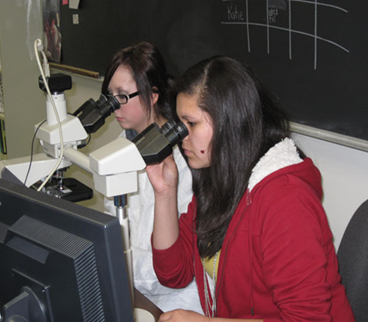
RAMP uses a strengths-based career-focused approach which includes a combination of group, peer, and one-to-one mentoring. Each youth works with the RAMP coordinator and their mentor to create a developmentally-focused Individualized Mentoring Plan (IMP) with a self-assessment in each area of youth development, short and long term goals, and areas for mentor support. Youth are supported by their peers in developing (and meeting!) weekly goals based on their plans.
Weekly Group Mentoring: Youth and mentors engage in career-focused group mentoring sessions delivered in four phases:
- Phase I: Self-Exploration and Community Mapping—mentor-mentee introductions, career interest and other assessments, career and educational goal identification, weekly goal setting, IMP creation, and career and support resource mapping;
- Phase II: Career Exploration—IMP progress; career information; work readiness, life, and soft skills development; weekly goal setting; and worksite tours.
- Phase III: Career Planning & Management—IMP progress, weekly goal setting, job shadowing, work experience, and high-tech team projects; and
- Phase IV: Transition—post-program transition plan, connection to summer school or employment, preparation for next academic year, enrollment in postsecondary or vocational education or employment (Group meetings may be less regular in this phase.).
Each phase lasts about one quarter and consists of 10 to 12 meetings attended by both youth and mentors. There is also time allotted in each phase for at least one additional structured mentor-mentee activity (educational or recreational). These promote relationship-building and meet the often unmet need for recreation among youth with disabilities.
The weekly career-focused activities include labor market research; career and postsecondary exploration; social and work readiness skills training; resume creation; interview skill-building; and learning about disability disclosure, job retention, disability benefits, and financial planning. Employers and industry professionals provide guest speakers, technical skills training, industry-related materials, worksite tours, work experiences, and job shadowing.
Peer Mentoring: Peers support each other in setting and keeping weekly career preparation goals. Each week, the group reviews the goals and checks on each other’s progress. Weekly goals may include researching the necessary education for a given career, getting to class on time, or researching the bus route to a job. Youth check-in with each other throughout the week and provide logistical and motivational support. At one site, youth took a bus together to pick up a college financial application. At another site, RAMP became a code word youth whispered to each other as a reminder not to get in trouble in class! At all sites, youth brag as much (or more!) about the goals and achievements of their peers as they do about their own progress. Youth keep weekly goal sheets to set goals in all developmental areas, document their progress, and celebrate success!
One-to-One Mentoring: The mentor-mentee matches are a critical component of RAMP, as they build a personal bond through exploring common interests and working together to identify and achieve youth’s goals. Mentors and mentees meet one-on-one through each phase to work on the IMP. These plans include mentor and mentee goals for the mentoring relationship, youth’s long-term career and educational goals, youth’s strengths, areas for development, short-term goals, and action steps in each of the five areas of youth development (working, learning, thriving, connecting, and leading). Mentors and mentees meet regularly to review IMPs and update them quarterly.
Career-focused STEM Projects: In Phase III, youth divide into high-tech teams of six to eight youth. Teams work with mentors and industry advisors to complete projects relevant to youth’s career interests. Team activities build social competence and workplace soft skills, such as communication and time management, while strengthening youth’s awareness of high-tech careers and related education. Sites recruit industry advisors from the employers who participated in Phases I and II and those youth identified through career resource mapping. Current RAMP sites’ high-tech projects have included producing public access television programming in Denver; developing and testing aerodynamic fiberglass skateboards with the University of Houston School of Design; testing optical filters for microscopic medical lenses with Chroma Laboratories in Vermont; and building solar-powered radios with Baltimore Gas and Electric. The program year culminates with a transition plan for each youth and an annual meeting in D.C. where youth representatives from each site share their projects.